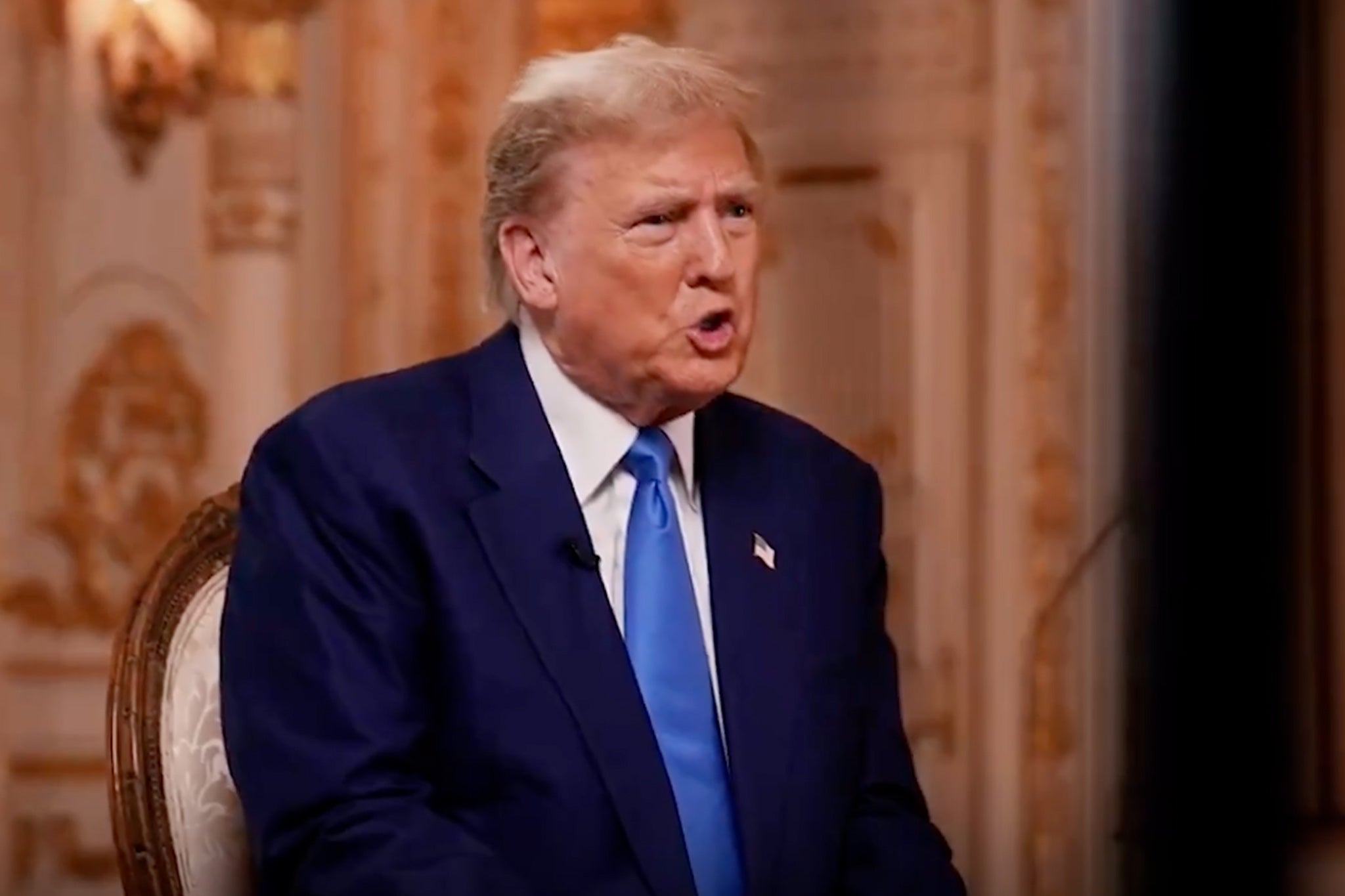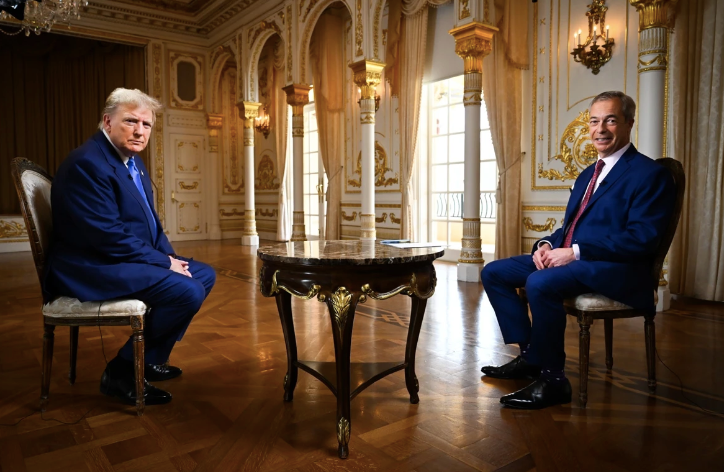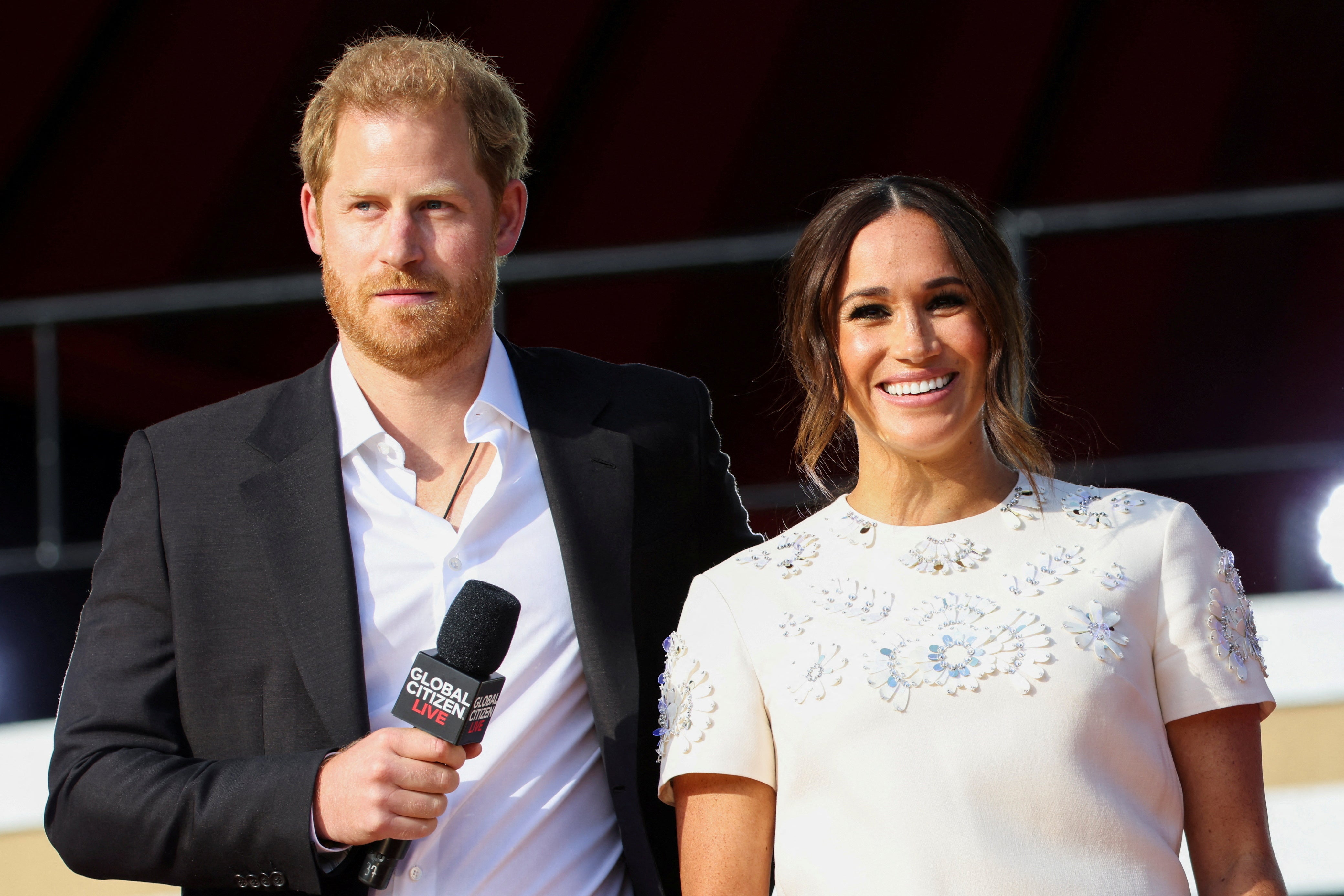Donald Trump falsely claims US funds ‘90 or 100%’ of Nato in GB News interview with Nigel Farage
Former US president Donald Trump has threatened to refuse to defend Nato states who do not meet their defence spending requirements
Your support helps us to tell the story
From reproductive rights to climate change to Big Tech, The Independent is on the ground when the story is developing. Whether it's investigating the financials of Elon Musk's pro-Trump PAC or producing our latest documentary, 'The A Word', which shines a light on the American women fighting for reproductive rights, we know how important it is to parse out the facts from the messaging.
At such a critical moment in US history, we need reporters on the ground. Your donation allows us to keep sending journalists to speak to both sides of the story.
The Independent is trusted by Americans across the entire political spectrum. And unlike many other quality news outlets, we choose not to lock Americans out of our reporting and analysis with paywalls. We believe quality journalism should be available to everyone, paid for by those who can afford it.
Your support makes all the difference.Donald Trump has falsely claimed that the US funds “90 to 100 per cent” of Nato as he suggested the US would defend fellow alliance members from attack - if they paid their bills.
The former US President claimed Nato would not exist without American funding before demanding that member states pay their “fair share”, during a GB News interview with Nigel Farage on Tuesday evening.
Although the US does account for the majority of Nato defence spending, the figure is approximately 70 per cent. And when it comes to direct contributions - money provided by members to cover organisational costs - the US contributes 16 per cent of the total, the same as Germany.

“Nato has to treat the US fairly, because if it’s not for the United States, Nato literally doesn’t even exist,” MrTrump told Mr Farage.
Asked if the US under his presidency would come to the aid of Nato countries under attack, Mr Trump said he would - only if they had already increased their defence spending. It was the second time this year he had made comments to that effect, hinting at what the relationship with Nato would be like if he returns to the presidency in the November US elections.
Last month, he said he would "encourage" Russia to "do whatever the hell they want" to Nato countries which didn’t meet their financial obligations to the alliance.
Only 11 Nato member states currently spend the required two per cent of their gross domestic product (GDP), according to Statista. And major countries, including Germany, France and Italy, have previously failed to meet this target, despite it being mandatory. However, in light of Vladimir Putin’s full-scale invasion of Ukraine, European Nato states are increasing their spending.

The alliance’s secretary general Jens Stoltenberg said earlier this year that he expects 18 allies to meet the two per cent requirement in 2024, a six-fold increase since 2014, when Putin first launched an invasion of eastern Ukraine.
“In 2024, NATO Allies in Europe will invest a combined total of 380 billion US dollars in defence. For the first time, this amounts to two per cent of their combined GDP," said Mr Stoltenberg in February.
That same Germany announced that it had met the two per cent target, having allocated the equivalent of €71.8 billion (£61bn) for defence spending in the current year through regular and special budget outlays.
Mr Trump interview with the former Brexit Party leader Nigel Farage took place at the former president’s Mar-A-Lago resort in Florida.
During the conversation he touched on a number of other subjects, repeating the false claim that he won in the 2020 race and saying that he had not been approached by potential future prime minister Sir Keir Starmer when asked by Mr Farage. He also addressed issues facing the royal family, including the doctored photo of Kate Middleton, his admiration of the Queen and Prince Harry’s US visa.

Asked if Harry should have “special privileges” if he is found to have lied in his visa application, Mr Trump said: “No. We’ll have to see if they know something about the drugs, and if he lied they’ll have to take appropriate action.”
However, Mr Trump refused to be drawn on whether Harry could be forced to leave the US, where he currently lives with his wife and children.
“Oh, I don’t know,” he said. “You’ll have to tell me. You just have to tell me. You would have thought they would have known this a long time ago.”
It comes after Harry’s references to taking cocaine, marijuana and psychedelic mushrooms in his memoir Spare prompted a conservative Washington DC think tank to question why he was allowed into the US in 2020.
The Heritage Foundation brought the lawsuit against the Department for Homeland Security (DHS) after a Freedom of Information Act request was rejected – claiming it was of “immense public interest”.
Join our commenting forum
Join thought-provoking conversations, follow other Independent readers and see their replies
Comments